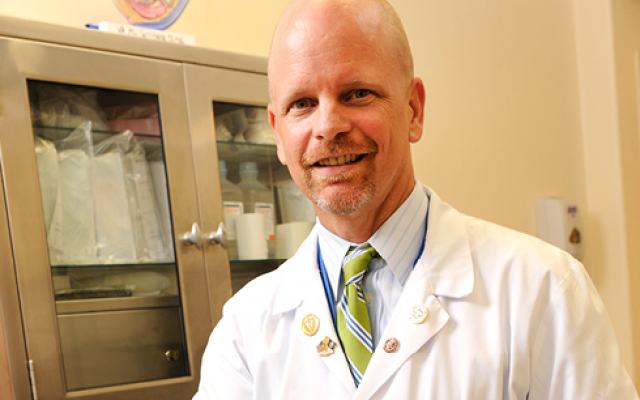Sexuality Remains Important Part of Aging
As our population of older Americans increases, health care providers have had to confront the role of human sexuality in the aging process.

In recent years, as our population of older Americans increases, health care providers have had to confront the role of human sexuality in the aging process. It is an important consideration for those like Dr. Ted Johnson, a geriatrician who guides health care delivery for seniors in the extensive network of hospitals and clinics at Emory Healthcare.
We asked Dr. Johnson about the issue of sexuality among older Americans.
AJT: How is the discussion changing?
Johnson: People living through changes in their lives recognize that something’s different about sexual activity; it doesn’t mean that we become without sex. We’ve maintained our identity as sexual beings, but things are just different. In the last decade we’ve seen senior sexuality discussed by Lily Tomlin and Jane Fonda in their “Grace and Frankie” program on Netflix. And so, I think that the conversation has changed and that there’s perhaps more media portrayals of people discussing their sexuality. Just because they’re over 55 years of age, they haven’t just lost interest.
There’s an interesting relationship between health care providers and the older patients. And the first thing I’d say is that older adults are probably more interested in receiving information, but doctors aren’t sure that their patients want to have this discussion. So the mismatch is that providers are not necessarily willing to initiate the discussion about sexuality and sexual activity with our patients. I remember when I was in training and my mother was talking to one of her friends and my mother’s friend said, ‘Well your son is probably a really good doctor, but I have someone who delivers my newspaper who’s older than he looks. And I feel really uncomfortable talking about things that I’d like to talk about.’ And so there is that level of comfort with someone who is trusted and with whom we have a relationship.
AJT: As we age does our definition of intimacy also change?
Johnson: I think that it should and that we should have more flexibility in the types of activity that we’re open to and the types of activity that we have as fulfilling. This whole notion of being intimate versus being sexually active is really an important one. If you have bad heart disease or if you have severe arthritis, there may be different ways of being intimate with someone else.
I can assure you that your 50-year-old golf self is not the same as your 80-year-old golf self. Even the Tiger Woods victory at the Masters was interesting just because he was not longest off the tee like he was in earlier years. So I think that giving ourselves permission to be a different sort of intimate self is exactly right.
AJT: What about those who are suffering from memory loss or dementia? How does aging affect their sexuality?
Johnson: The National Institute on Aging has some comments on this question. Some people with dementia show increased interest in sex and physical touch and they may lose the ability to judge what’s appropriate behavior. And so, some people with severe dementia may not recognize their spouse or partner. But they may desire contact and seek it with someone else. We’ve had that situation in some of the long-term care facilities in which I’ve worked. It’s a very, very difficult issue.
AJT: So what is your goal as a leader in health care, thinking about health care for older Americans? What are your priorities?
Johnson: I’m very motivated as a physician to help my patients and their families fully participate in life. The second thing that really motivates me is making sure that what we do as health care providers in the health care system doesn’t cause harm and that our interventions are thoughtful and well-directed and targeted so that we’re not causing problems and we’re trying to create the best chance for health wellness and prevention.
I’m interested in providers being engaged in what’s important to their patients and their families in life. And so that means not just being on our own agenda but really understanding what matters.



comments